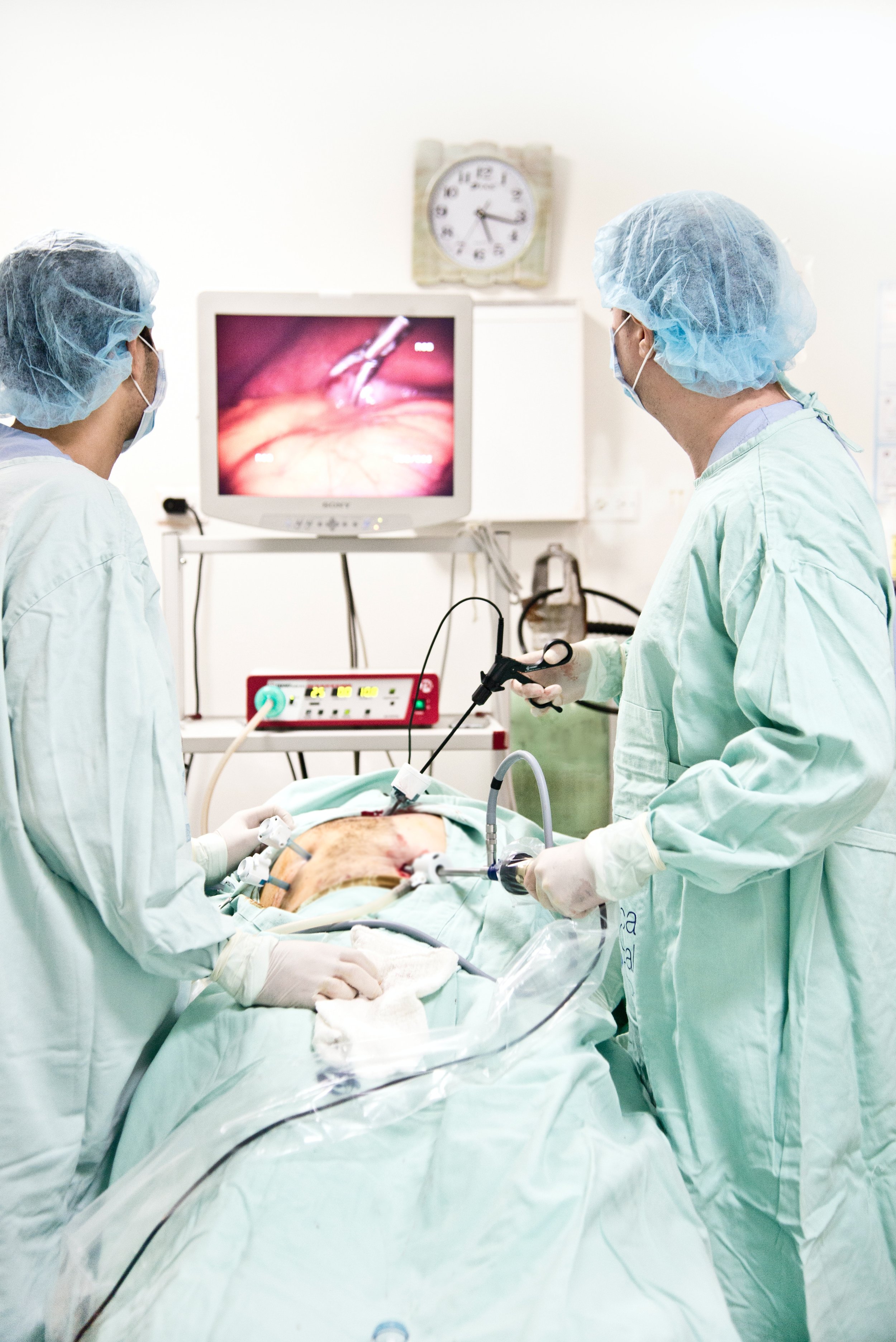If you have been diagnosed with irritable bowel syndrome (IBS), inflammatory bowel disease (IBD), or some other functional gastrointestinal disorder (FGID), you probably already know that gastroenterology is the branch of medicine that focuses on the human digestive system. However, you may be less familiar with neurogastroenterology, a subspecialty of gastroenterology overlapping with neurology, which focuses on the brain, spinal cord, and the peripheral nerve.
Read MoreGastritis is inflammation at the lining of the stomach. This can occur immediately (acute) or gradually (chronic).
Types of gastritis:
· Erosive (reactive): causes inflammation and the wearing away of the lining of the stomach
· Non-erosive: inflammation of the lining of the stomach without compromising the lining of the stomach
Read MoreCeliac disease is an autoimmune disease. Ingesting gluten ultimately leads to damage of the small intestine.
When a person eats gluten the body causes an immune response that attacks the small intestine. The villi, small fingerlike projections that line the small intestine, becomes damaged. When damaged it is unable to properly absorb nutrients into the body causing it to become hard to digest food.
Read MoreGood news! A new location has opened for GastroMed. With the new addition, GastroMed now has a total of seven locations.
Read MoreAcid Reflux, Heartburn and GERD can also additionally appear comparable, however they truly are very different. Acid Reflux occurs when the lower esophageal sphincter (LES) is vulnerable, inflicting the acid out of your belly to transport backward into your esophagus. Heartburn is when the acid occurring within the esophagus causes a burning sensation inside the chest. GERD is a persistent shape of acid reflux.
Read MoreWhen you suffer from Crohn’s disease, any part of the large or small intestine can be affected. For some, it just affects the colon (large intestine). Crohn’s disease causes the immune system to overreact, causing inflammation. Crohn’s also affects the eyes, skin and joints. According to NIH, half a million Americans suffer from Crohn’s.
Read MoreIBS is considered to be a type of functional GI disorder. This creates problems with the brain-gut interaction. Brain-gut interaction is how the brain and gut work together. There are 3 different types of IBS. Based on the type of bowel movement you have is how you figure which IBS you have.
Read MoreEven though gastroenterology and gastrointestinal mean similar things, they are not the same. Gastroenterology is a branch of medicine that focuses on the digest tract and its disorders. Gastrointestinal is the digestive tract as a whole.
Read MoreInflammatory Bowel Disease focuses on your gastrointestinal tract and is caused by a faulty immune system. IBD is divided into two types: crohn’s disease and ulcerative colitis. Crohn’s disease happens when your digestive tract lining is inflamed. Ulcerative colitis occurs when the lining of the colon has sores or is inflamed. You will notice Crohn’s when damaged areas begin to show up in patches next to healthy tissue. For ulcerative colitis it continues but it is not patchy. It begins at the rectum and then spreads to the colon.
Read MoreOver 70 million Americans suffer from digestive diseases each year whether it be Gas Reflux Disease or Inflammatory Bowel Syndrome (IBS). An unhealthy gut overall affects your whole body. A proper diet and exercise can help bring your gut back to health. When you have good bacteria in your gut it can help digest food, improve your mood, and improve your immune system function.
Read MoreColonoscopy and Endoscopy might deal with issues in the same body area, but they both diagnose and look at different medical symptoms. A colonoscopy is a type of endoscopy where the lower part of the digestive tract (rectum, colon) is observed. Endoscopy is when the doctor performs a nonsurgical procedure to look at the upper digestive tract (esophagus, stomach or duodenum).
Read MoreA mild case of hemorrhoids may just be an annoyance you choose to live with, but when the itching, burning, and bleeding start to disrupt your life, it’s time to get professional help.
Read MoreMillions of people in the United States have viral hepatitis and many may not even know it, according to the U.S. Department of Health and Human Services. Depending on the cause, hepatitis symptoms may not occur until you’ve developed serious liver damage.
Read MoreAlcohol is a major part of the social landscape for young adults. Unfortunately, many young people drink too much, and it’s starting to lead to serious health issues, especially for millennials, those born between 1980 and 1994.
Read MoreYour pancreas plays a vital role in helping turn the food you eat into energy. It produces and secretes the enzymes your digestive system uses to break down food for absorption, as well as the hormone insulin that helps transport glucose (energy) from your blood into your cells.
Read MoreSome of the most common digestive symptoms reported included diarrhea, vomiting, and abdominal pain. The May 2020 study found that those patients experiencing digestive symptoms also had increased liver enzyme levels.
Read More















